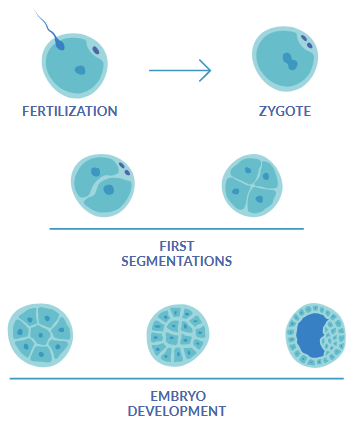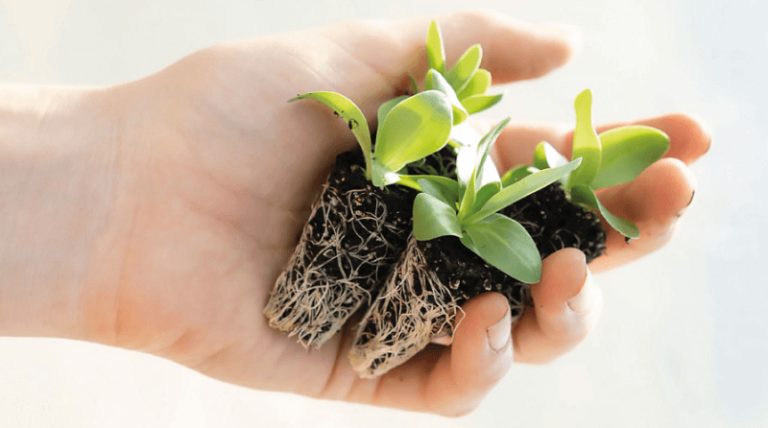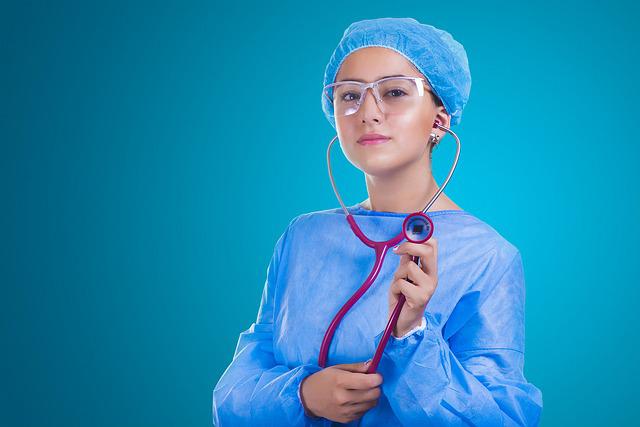Pregnancy is the most wonderful human adventure that we can ever go on and although it is an everyday occurrence, it never ceases to amaze us from many standpoints, including the purely biological one. There are numerous biological players involved in having a viable pregnancy, which are the cells and the molecules and they must work perfectly; the fundamental factor of each one of the processes is the dialogue established between cells through molecules, which are known as proteins. And the genes, which are located in the nucleus of the cell, have to provide specific instructions so that the cells produce the proteins.
Therefore, when it comes to “Genetics” we mean the genes, their structure, any possible gene alteration and the consequences that this has on the functions of the human body. If genes are altered, they can change the proteins and impair the aforesaid dialogue between cells. Moreover, half the genes are passed on to the descendants of an individual.
We have 20,000 genes grouped on 46 DNA molecules known as chromosomes, which are organized in pairs. Twenty two of these molecules are the same in men and women and there is only one pair that is different; in women this pair is said to be two chromosomes called XX and in men they are called XY. We inherit one from our mother and another one from our father, but not all siblings inherit the same member of each pair of chromosomes from each parent and that is why we are so different within the same family. When the woman produces the gametes –eggs and the man produces the sperm -, each of them will have only one member of each pair of chromosomes and for this process to occur, molecules called hormones, which are also composed of proteins and are therefore controlled by the genes, have to be stimulated. Genetic alterations can occur in this process, which prevent the genesis of a healthy embryo.

After fertilization, which is the fusion of the sperm and an egg, a new cell is formed called the zygote that starts to divide into what is known as the pre-embryo and later the embryo. In just a few days it splits many times into many cells, so by day 5 the embryo has hundreds of cells and it is called a blastocyst, because a cavity has already formed inside it. From this day onwards, a new dialogue is established between the blastocyst and the uterus, which allows the embryo to adhere to the wall of the uterus, in a process known as implantation. In the first few days and weeks after fertilization, sometimes cell division fails, which results in abnormal cells that are often incompatible with life. That is why; it is quite common that flaws in the gametes or alterations in the cell divisions in the embryo result in an early miscarriage. There are genetic factors behind many of these alterations in the gametes or the embryo. Nowadays, having plenty of genetic tests available we can identify the causes of these in the woman or the man, and select the embryos that do not have genetic alterations, so that the likelihood of giving birth to a healthy boy or girl is greater. The growing knowledge of human genetics and the evolution of technology mean that clinical genetics is revolutionizing modern medicine. In the field of Assisted Reproduction this fact is especially important, which is why it is essential to have a good group of geneticists in the assisted reproduction team to get the most successful results.




